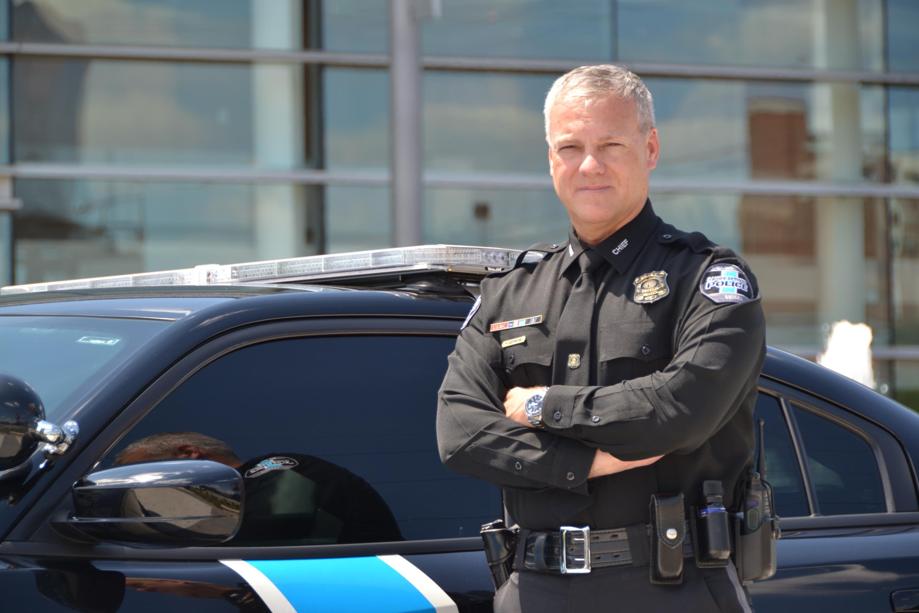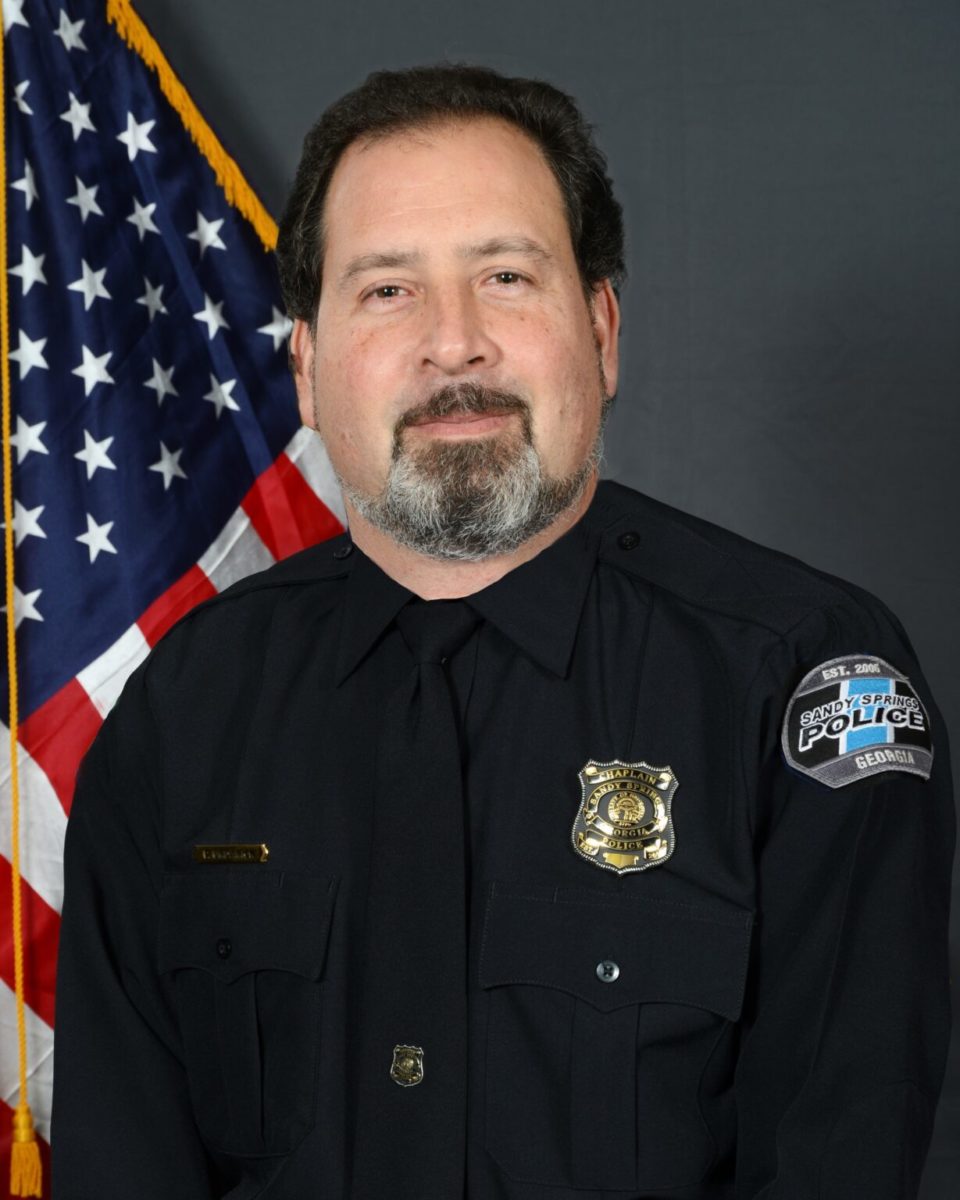The Sandy Springs Police Department is looking for a few good male or female clergy who are interested in volunteering as chaplains. The department already has a Christian pastor and Jewish rabbi on staff, but Chief Kenneth DeSimone (pictured above) said any ordained clergy associated with a church, mosque or synagogue interested in serving the 150-plus police force is welcome.
“We would take a Muslim, Mormon or Mennonite,” said DeSimone. “There’s no reasonable limit.” As the department grows, its need for chaplains grows, he explained. “We will continue to grow because the city is growing.”
Sandy Springs Chaplaincy Program
Sandy Springs became a city in 2005. The police department was created the next year. In 2008, the chaplaincy program was launched. The police is the only city department that has chaplains, so they are often called upon to open city council meetings with prayers or offer invocations at Christmas parties.
According to DeSimone, “chaplains have been imbedded with the U.S. armed forces since the 1700s.” He sees having police chaplains as “another way to offer assistance to our police officers and to the community.”
As DeSimone pointed out, the police are the only form of government that citizens can call at 1 a.m. on New Year’s Eve and someone comes. “Anytime we get a call, it is some kind of crisis.” Hence the need for chaplains. They not only ride along with officers, responding to calls, and building their relationships. “If there’s a particularly traumatic or death notification, such as if a young child is dead, the police officer can request that a chaplain accompany” the officer to notify that family.
DeSimone recalled that one of their first chaplains was with a police officer who responded to a fatal car accident, about 2 a.m. The policeman suggested the chaplain view the deceased in the car. The chaplain had never seen a dead body outside of a hospital or funeral home. The officer said, “This is what my police officers see all the time.” DeSimone said it was very emotional for the chaplain.
It is because of these kinds of experiences that DeSimone looks for “mental resolve and psychological toughness” when he hires a chaplain. He also seeks someone who is personable, outgoing and doesn’t mind working. He said it’s “like picking a reverend, minister, rabbi or imam for your church, synagogue or mosque.”
Chaplain Profiles
Pastor Peter Urdanick has been a chaplain with the Sandy Springs Police Department for about a decade. Urdanick, who is the Men’s Ministry and Benevolence Pastor at First Baptist Church Atlanta, said, “It’s a pleasure to do what I do.” The Sandy Springs chaplains typically work an average of six to eight hours a week for the police, although it could be 12 to 24, said the chief. Urdanick said he tries to ride along with police officers 15 to 20 hours a month. “What is said in the car [between a police officer and chaplain] stays in the car. This builds trust.” He also works out regularly at the department’s gym, which offers a more casual way to interact and build relationships with the officers.
Rabbi Spike Anderson of Temple Emanu-El in Sandy Springs, who has been a chaplain with the force for five years, said Urdanick was “the one who took me to the police gym” the first time. Mixing with the police as they work out is a way for the officers to become more comfortable with the chaplains. The objective, Anderson said, is “How do we get ourselves seen by this tight-knit group?”
In the time he has served the Sandy Springs Police Department, Anderson said he has gained a new perspective about police. “I have a tremendous amount of respect for them. Most people could not do this job. They have real human concerns like spouses, mortgages, kids and aging parents,” but on top of that they have a very stressful job. “Lots of eyes are on them all the time.”
Urdanick explains that he serves the police officers by providing responses to Biblical questions or relationship questions. “I am a spiritual advisor,” noting that he is certified as a chaplain through the state and is required to take 20 hours of continuing education every year.
Both chaplains were provided with police-issued uniforms, as well as bullet-proof vests, boots and a hat with insignia. “We are clearly identified as chaplains.” Although they receive periodic security training, they are not provided with guns.
Referring to the department’s chaplains, DeSimone said, “These are two men that deserve for the public to know what they do.”
If anyone who fits the criteria is interested in joining the volunteer police chaplaincy program, they should contact DeSimone’s executive assistant, Sandy Rose at 770-551-6910.




